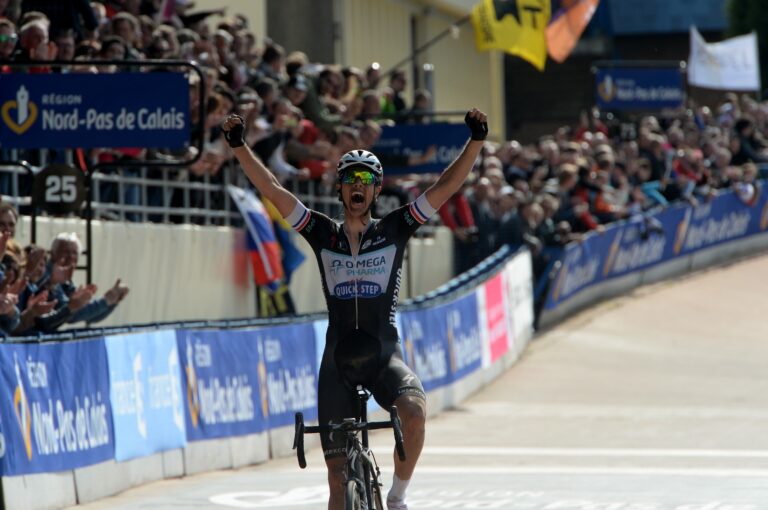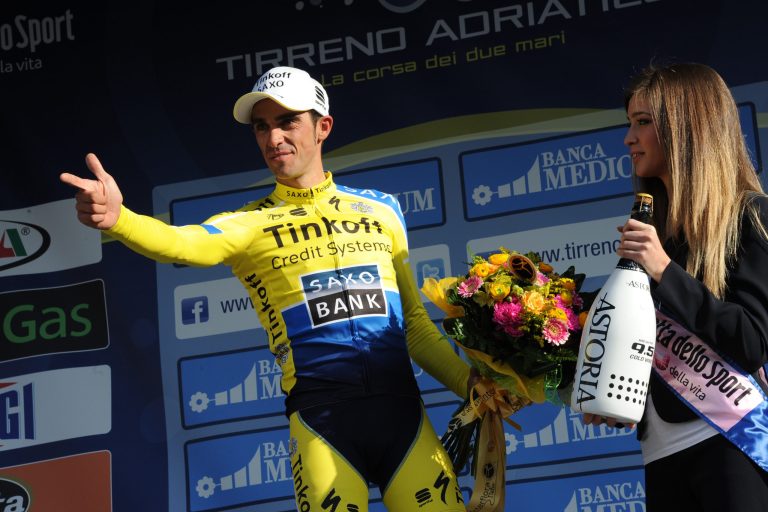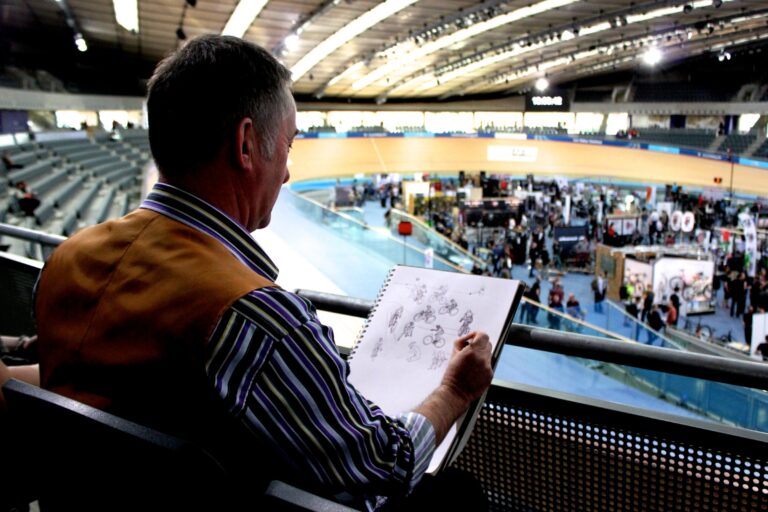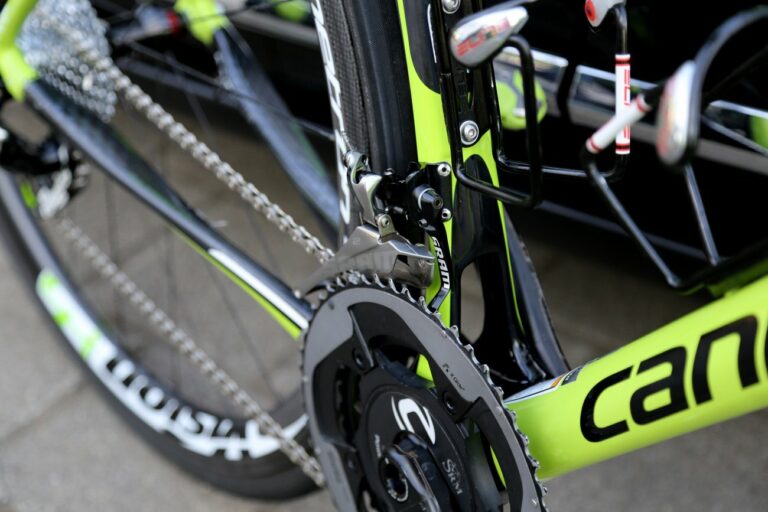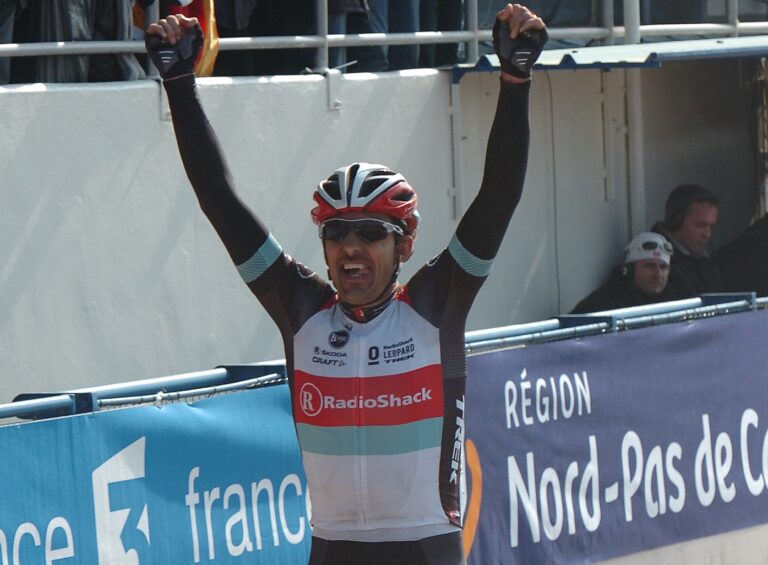They call it the Revolution Series, and while the epithet is apt for a sport contested on a circular track, there is no sense of revolt at this travelling circus, one that in recent years has expanded its list of destinations as new velodromes have been built. The final round of this tenth season is the first competitive event at the long-delayed opening to the public of the London Olympic Velodrome.
Great Britain’s stars of 2012 are celebrated like homecoming kings and queens and a welcome almost as vociferous is extended to champions visiting from overseas. The Future Stars series, fronted by the greatest of all British Olympians, Sir Chris Hoy, gives credence to the much-trumpeted concept of legacy: that the achievements of the Scot and his team-mates the last time this velodrome hosted competitive action would have lasting consequences.

Sixteen-year-old Joe Holt, crowned this night as the Boy’s Future Stars champion, and the latest from a seemingly unstoppable conveyer belt of Welsh cycling talent, is under no illusion about that what the victory might mean. Sealing his success with a victory in the scratch race, the west Wales rider is looking at a bright future.
The second night of the final round begins with the semi-final for the men’s sprint, an encounter that could be billed as the main event: a “rematch” between Jason Kenny and the man who deposed him as keirin world champion three weeks ago, Francois Pervis. The Frenchman wears his bounty this evening: a white skinsuit with the rainbow stripes of world champion across the chest, a garment he appears to have put on with the aid of a shoehorn.
The evening begins badly for Kenny, who loses the first of their encounters. In the second, however, he repeats a trick he had pulled against another Frenchman, Gregory Bauge, attacking early and opening a gap that Pervis finds impossible to close, despite his extraordinary turn of speed. The effort is audacious and grueling: Kenny’s mouth is wide open as he exits the last bend, funneling in air. The velodrome roars its approval and it’s 2012 all over again. The acoustics, woeful for the commentary, are ideally suited to the rumble of a passionate home support.
Kenny is as diffident in victory as he is in defeat. The three-time Olympic champion seems almost embarrassed by his talent. As he climbs from the bike to begin his return to track centre, he exhorts the crowd to repeat its show of support, and the punters respond with another huge roar. Kenny’s grin reveals that his gesture has been made with tongue in check, perhaps sending up the audacity of his attack and modestly acknowledging that, tonight at least, Pervis is the man in better form.
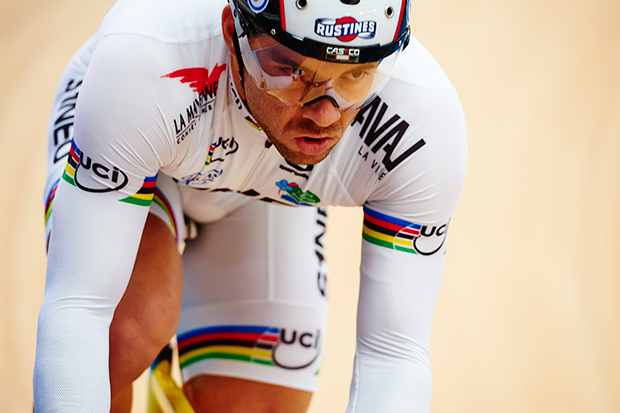
Kenny’s defeat in the deciding round of his encounter with Pervis means that Callum Skinner is the British interest in the men’s sprint final. The 22-year-old Scot was the star of the second round of the Revolution Series on what might be described as his home boards in Glasgow, though he learned his trade at Meadowbank, like Hoy, his inspiration.
Skinner is young and fearless. He leads out Pervis in the first of their encounters, but is made to pay for his audacity by the world champion. Pervis makes their second encounter the last with another victory, but not before he has been dive-bombed by Skinner, who cuts inside the Frenchman’s line with a ferocity that confirms he cares little for reputation. The Commonwealth Games and a return to Glasgow beckon for Skinner: a suitable stage, perhaps, for the Scot to announce his presence to the wider world.
Laura Trott is back at the venue where she became a household name two years ago by winning two Olympic gold medals. A fascinating talent by any measure, relentlessly successful on the track, disarmingly direct off it, and endlessly hungry for victory, Trott might name only Mark Cavendish among those whose approach identifies victory as a necessary rather than desirable outcome.
There are no major or minor competitions for Trott. Every race is a ‘must win’ fixture. She seems to have little choice in the matter. Once the starter’s pistol is fired, she becomes a prisoner of instinct. The women’s omnium provides further evidence: Trott wins all six events. There is no reason for her to go to her limit so soon after the world championships, except to satisfy her competitive instinct, a command that appears to extend some way beyond professional pride.
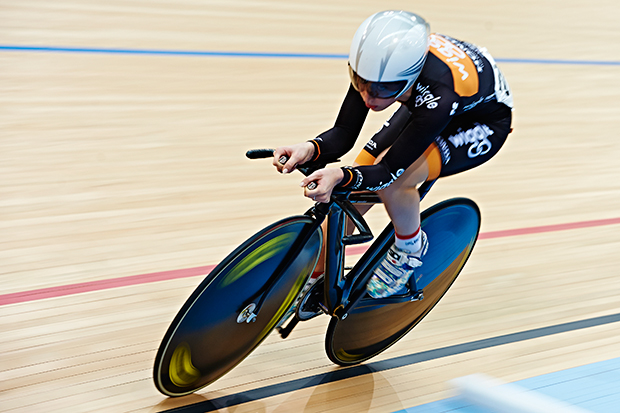
The men’s madison time trial, the most exciting event in Glasgow, steals the show again in London. It is contested by riders with impressive credentials, including double Olympic champion, Ed Clancy (Rapha Condor JLT), his team-mate last year in Great Britain’s world championship-winning team pursuit squad, Andy Tennant (Madison Genesis), and newly crowned world madison champion, Albert Torres.
Tennant and team-mate, Tom Scully, set the early pace, but Clancy is visibly quicker than any who have gone before him, and slashes four-tenths of a second from Scully’s opening effort. It is of considerable credit to his young team-mate, Ollie Wood, that he extends the margin, and by the time the pair have finished their work, Rapha Condor JLT have recorded victory by nearly 1.5 seconds. “Ed the red” has dominated the Revolution Series in recent years and shows no sign of slowing down.
The real stars of this first post-Olympic event, however, are not the riders. The spectators, who have turned out in their thousands for two days of racing, and the volunteers who line the route from Stratford station to the Lee Valley VeloPark, shepherding the visitors safely to and from the velodrome, provide perhaps the greatest evidence that the spirit of 2012 lives on.
RoadCyclingUK attended the final round of the Revolution Series as guests of the Madison Genesis UCI Continental road team.

